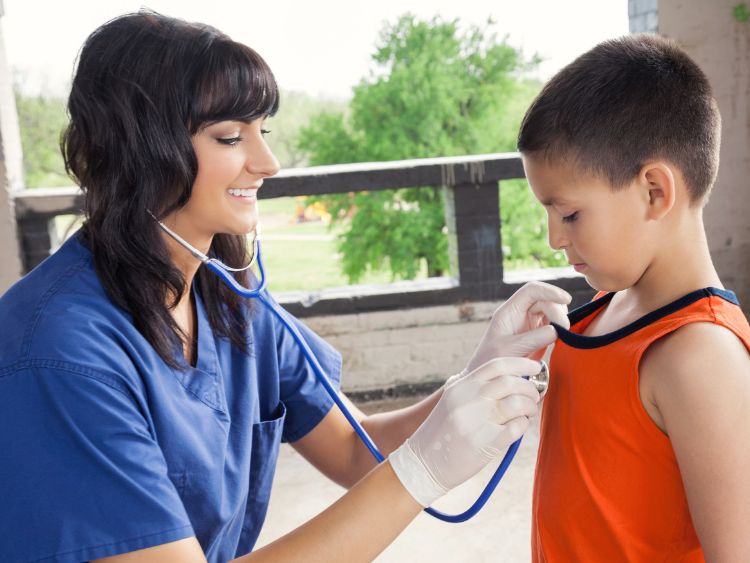In the tapestry of global health, refugee health screening clinics stand out as vibrant threads, symbolizing hope and healing for individuals who have faced unimaginable hardships. As our world becomes increasingly interconnected, the importance of ensuring the well-being of refugees can’t be overstated. This article dives deep into the heart of refugee health screening clinics, highlighting their crucial role, the services they offer, and how they pave the way for healthier, happier lives for refugees around the globe.
Imagine leaving everything you know behind in search of safety, only to be met with the daunting challenge of navigating a new healthcare system in a foreign land. That’s the reality for millions of refugees worldwide. Refugee health screening clinics serve as a beacon of hope, providing essential health services that are tailored to meet the unique needs of refugees. These clinics are more than just healthcare facilities; they are a critical first step in a refugee’s journey towards integration and well-being in their new home.
What Makes Refugee Health Screening Clinics Unique?
Refugee health screening clinics are specialized healthcare centers designed to address the complex health needs of refugees. These clinics offer a wide range of services, including:
- Comprehensive health assessments
- Immunizations
- Mental health support
- Treatment for infectious diseases
- Nutritional counseling
- Referrals to specialized care
These services are provided by teams of healthcare professionals who are not only experts in their fields but also culturally sensitive to the backgrounds of the refugees they serve. This combination of expertise and empathy ensures that refugees receive the highest quality of care, tailored to their specific needs.
The Impact of Refugee Health Screening Clinics on Public Health
The work of refugee health screening clinics extends beyond the individual level, contributing significantly to the overall public health of the communities they serve. By ensuring that refugees receive timely and appropriate health screenings, these clinics play a vital role in preventing the spread of infectious diseases, addressing public health concerns, and reducing healthcare costs in the long run.
Key Services Offered by Refugee Health Screening Clinics
Refugee health screening clinics provide a comprehensive range of services designed to meet the diverse health needs of refugees. Let’s take a closer look at some of these essential services:
- Initial Health Assessments: Upon arrival, refugees undergo thorough health screenings to identify any immediate health concerns and establish a baseline for their health care.
- Immunizations: Clinics ensure that refugees are up-to-date with vaccinations, protecting both the refugees and the broader community from vaccine-preventable diseases.
- Mental Health Support: Recognizing the trauma many refugees have experienced, mental health services are a cornerstone of the care provided, offering counseling and support for conditions such as PTSD, anxiety, and depression.
- Infectious Disease Management: Screening and treatment for infectious diseases are critical, especially for conditions that may be prevalent in refugee populations, such as tuberculosis.
- Nutritional Support: Nutritional counseling and support address malnutrition and provide education on healthy eating habits in a new environment.
How Refugee Health Screening Clinics Facilitate Integration
Beyond providing healthcare, refugee health screening clinics play a pivotal role in helping refugees integrate into their new communities. By addressing health barriers, these clinics enable refugees to attend school, seek employment, and participate fully in society. This not only benefits the refugees themselves but also enriches the cultural and social fabric of their new communities.
FAQs
Q: Are refugee health screening clinics free? A: Yes, most services offered by refugee health screening clinics are free to refugees, ensuring that financial barriers do not prevent them from accessing necessary healthcare.
Q: How can refugees access these clinics? A: Refugees are often referred to health screening clinics by resettlement agencies or can seek out services directly by contacting local health departments or community health centers.
Q: Can refugees choose not to participate in health screenings? A: While participation is highly encouraged, refugees have the right to decline any part of the health screening. However, they are informed of the benefits of these screenings for their own health and the health of the community.
Summary
Refugee health screening clinics are more than just healthcare facilities; they are a vital first step in a refugee’s journey towards a new life. By providing comprehensive health services, these clinics not only address immediate health needs but also support the long-term integration and well-being of refugees in their new communities. The dedicated professionals working in these clinics are not just healthcare providers; they are allies, advocates, and friends to those who have faced unimaginable challenges. As our world continues to navigate the complexities of global migration, the role of refugee health screening clinics remains essential, embodying hope and healing for some of the most vulnerable members of our global family.

